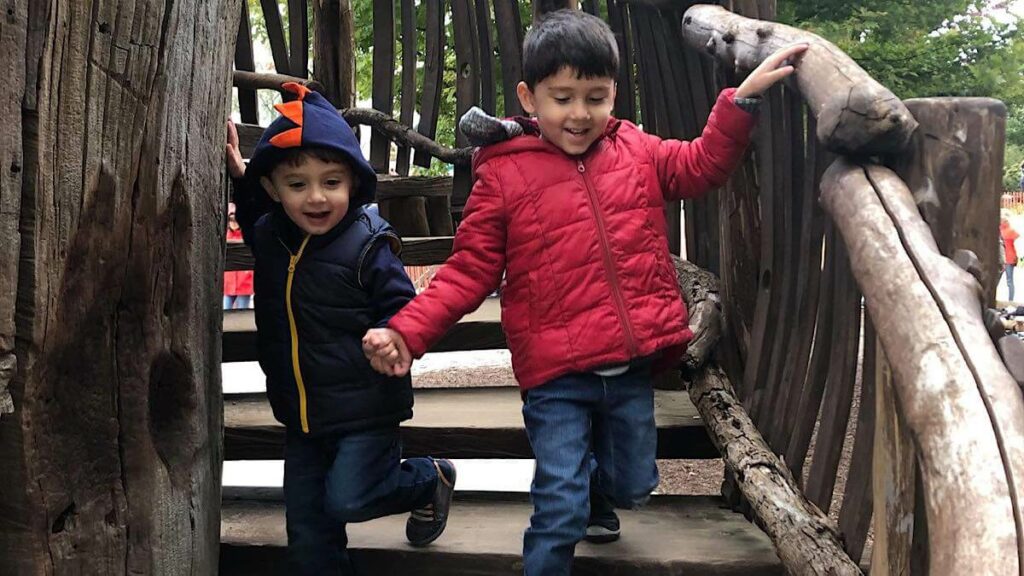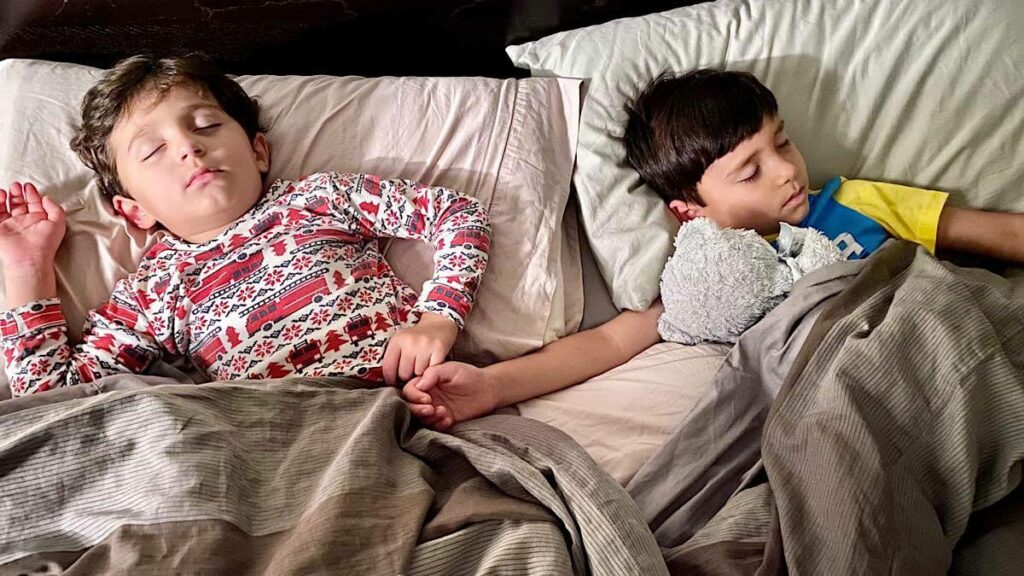How to Treat a Child With Autism: Look to the Siblings
Happy Autism Awareness Month!
I know the calendar has become saturated with bizarre days of observation, from National Bubble Wrap Appreciation Day, to International No Diet Day, to National Margarita Day (not mad about that one). But I happen to think a month to promote acceptance of people with autism and inspire a kinder world is worthwhile occasion.
You probably know someone who’s autistic. Lucky you!
I’ll always celebrate Autism Awareness Month because my littlest man, Rhys (pronounced “Reece,” like Reece Witherspoon), is autistic and very much deserves a month dedicated to him. Rhys is 4 years old and amazing in so many ways. He’s taught me so much, and I can’t imagine our family without his sweet, raspy voice and infectious laugh.
But autism has made its imprint on each of us, including Rhys’s neurotypical older brother, Aidan, who turns 6 this month. He’s Rhys’s fierce protector, his biggest rival, and his best friend, all wrapped in one.
As Kate Swenson, the blogger behind Finding Cooper’s Voice, once said: “If you ever wonder how to treat a person with autism, look to the sibling.”
Siblings of autistic children are immersed in diversity and inclusion training all day every day, and often understand their siblings better than their parents.

At Aidan’s age, his innocence and loyalty make him Rhys’s #1 ally and the hero of our family.
His empathy is mature beyond his years.
Aidan is compassionate, tolerant, and responsive to Rhys’s needs, especially when no one is looking. As competitive as these brothers are, Aidan will let Rhys have the preferred toy or watch his favorite show for the 100th time when he knows it’s too difficult for Rhys to compromise. He could opt to stand his ground and force the grown-ups to make the call, and sometimes he does. But in most cases, if Rhys is upset, Aidan does anything to make his brother feel better.
He’s a helpful translator.
Rhys has been in speech therapy since he was 18 months old, but he still has quirky sentence patterns and struggles with certain sounds. Aidan can almost always understand him, and if we’re unable to interpret Rhys’s needs, Aidan will let us know about it.
He’s Rhys’s protector.
Like all siblings, Aidan and Rhys fight. Like, all the time. It feels like we’re constantly breaking up rumbles and mediating arguments, and Aidan uses Rhys’s triggers to needle him to no end. But just as he knows how to rile him up, he knows how to calm him down better than anyone. And if anyone else messes with Rhys – including us – he’ll come at them swinging.
He meets Rhys where he is.
It’s very subtle, but I see Aidan bending to accommodate Rhys’s rigidity, sensory needs, and extreme interests in between big brother jabs. He takes the time to explain things when he suspects Rhys doesn’t understand. And anytime he makes fast friends at the park, he intuitively says, “this is my brother, Rhys,” and includes him in their adventures.

Like all sibling relationships, the boys have their ups and downs with each other. They’re so young and so close in age, it can’t be easy to be the bigger person. Yet somehow Aidan instinctively knows to do it.
We’re conscious that Aidan’s instinct to step up could over time develop into feeling unfairly burdened or resentful, as special needs siblings often do.
It’s a delicate dance balancing the special needs of both of our boys.
Siblings of autistic kids need to grow up feeling seen, free to experience the world without always adjusting to their sibling’s limitations.
We all want to rally around Rhys because he needs more support, but not at the expense of giving Aidan a carefree childhood that lays the groundwork for becoming a happy, fulfilled adult.
At this moment in our lives, nothing brings me more joy than the special bond between our boys.
They’re loud, gross, hilarious, and sometimes rotten, but they’re in it together. Aidan’s neurotypicalness has provided Rhys with the banter and bickering of brotherhood and friendship that he may find challenging to form with others. Rhys’s autism has given Aidan early lessons in patience, resilience and empathy that may take other children many more years to develop.
If experts contend sibling relationships to be among the longest and most formative of a person’s life, then these kids are all set.

Hi there! I’m Kate Rahman, a lifelong storyteller, fueled by coffee, survived by wine. I’m a hot mess collection of clichés: busy working mom, loves stilettos but lives in yoga pants, eats chocolate in the pantry, cries in the shower. All the good ones… My husband, Imran and I are raising the sweetest little hoodlums: Aidan is five and neurotypical; Rhys is four and on the spectrum. For stories of resilience, grief, parenthood, and self-deprecation, subscribe to my blog Just pour. What the heck, go ahead follow me on Facebook and Instagram too!
Interested in writing for Finding Cooper’s Voice? LEARN MORE
Finding Cooper’s Voice is a safe, humorous, caring and honest place where you can celebrate the unique challenges of parenting a special needs child. Because you’re never alone in the struggles you face. And once you find your people, your allies, your village….all the challenges and struggles will seem just a little bit easier. Welcome to our journey. You can also follow us on Facebook, subscribe for exclusive videos, and subscribe to our newsletter.

